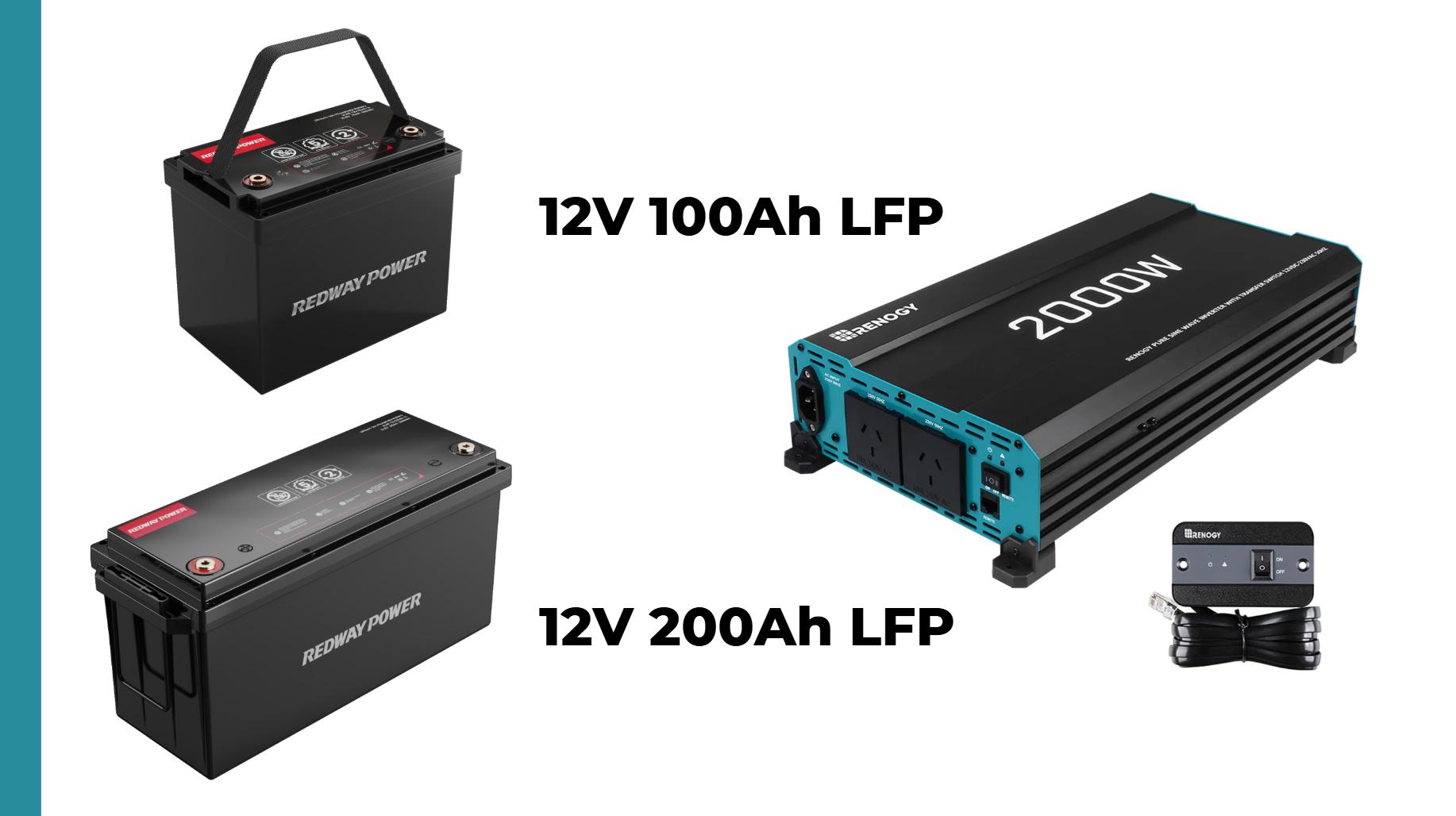
How Long Will a 12V Battery Power a 2000W Inverter?
A 12 volt battery can power a 2000 watt inverter, but the duration it lasts depends on several factors, including the battery’s capacity (measured in amp-hours) and the load being drawn from the inverter. Understanding how to calculate run time can help you effectively manage your power needs.
How do you calculate the run time of a 2000 watt inverter using a 12 volt battery?
To estimate how long a 12 volt battery can run a 2000 watt inverter, you can use the following formula:
For example, if you have a 100 Ah battery:
Chart: Estimated Run Times for Different Battery Capacities
| Battery Capacity (Ah) | Run Time at 2000W Load |
|---|---|
| 50 Ah | 30 minutes |
| 100 Ah | 60 minutes |
| 150 Ah | 90 minutes |
| 200 Ah | 120 minutes |
What is the formula for estimating battery life when using an inverter?
The formula to estimate battery life when using an inverter is:
This formula helps you understand how long your battery will last under specific load conditions. Remember to account for inverter efficiency, typically around 85%, which means you should adjust your calculations accordingly.
How does battery capacity influence the run time of an inverter?
Battery capacity directly affects how long your inverter can run. A higher amp-hour (Ah) rating means more stored energy, allowing for longer operation times. For instance:
- A 50 Ah battery will provide less run time than a 100 Ah battery under the same load conditions.
Chart: Impact of Battery Capacity on Run Time
| Battery Capacity (Ah) | Estimated Run Time at 2000W |
|---|---|
| 50 | ~30 minutes |
| 100 | ~60 minutes |
| 150 | ~90 minutes |
| 200 | ~120 minutes |
What factors can affect the actual run time of a 2000 watt inverter?
Several factors can influence the actual run time:
- Inverter Efficiency: Most inverters are not perfectly efficient; expect around 85% efficiency, meaning you’ll need to account for this in your calculations.
- Battery Age and Condition: Older batteries may not hold their charge as effectively as new ones.
- Temperature: Extreme temperatures can reduce battery performance and capacity.
- Load Variability: If your load fluctuates or has peak demands that exceed average usage, this will affect run time.
Are there practical examples of run times for different battery capacities?
Here are some practical examples based on common battery capacities:
- 50 Ah Battery:
- Estimated Run Time: ~30 minutes at full load.
- 100 Ah Battery:
- Estimated Run Time: ~60 minutes at full load.
- 150 Ah Battery:
- Estimated Run Time: ~90 minutes at full load.
- 200 Ah Battery:
- Estimated Run Time: ~120 minutes at full load.
These estimates assume ideal conditions; real-world performance may vary based on factors mentioned earlier.
Industrial News
The demand for inverters and batteries continues to rise as renewable energy sources become more prevalent. Recent advancements in battery technology are leading to longer-lasting and more efficient batteries that can better support high-wattage inverters. As consumers increasingly adopt off-grid systems, understanding how to manage power effectively is becoming essential.
Expert Views
“Understanding how to calculate and manage power consumption with inverters is crucial for anyone relying on portable or off-grid energy solutions,” states an industry expert. “By selecting the right battery capacity and being aware of efficiency losses, users can maximize their energy use and avoid unexpected downtime.”
FAQ Section
- How long will a 12 volt battery run a 2000 watt inverter?
It depends on the battery capacity; for example, a 100 Ah battery would last approximately 60 minutes under full load. - What factors affect how long my battery will last?
Factors include inverter efficiency, temperature, battery age, and load variability. - How do I calculate my expected run time?
Use the formula: Run Time=Battery Capacity Ah ×Voltage V / Inverter Load W - What is typical inverter efficiency?
Most inverters operate at about 85% efficiency, which should be factored into calculations.
